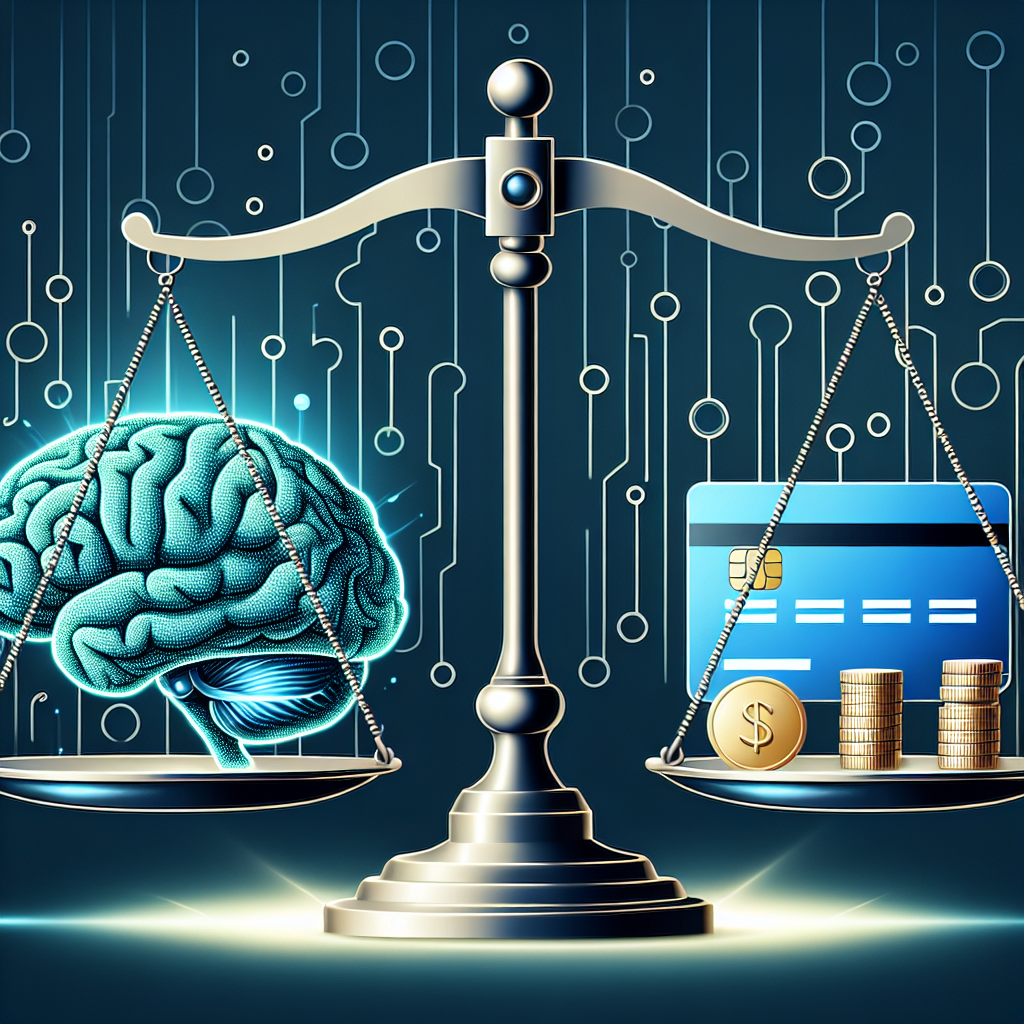Artificial Intelligence (AI) has been making significant advancements in various industries, and one of the areas where it is making a significant impact is in credit scoring. Traditional credit scoring models have been used for decades to assess an individual’s creditworthiness and determine their eligibility for financial products like loans and credit cards. However, these models have their limitations and often exclude individuals who may be creditworthy but lack a traditional credit history.
AI-powered credit scoring is changing the game by using machine learning algorithms to analyze a wider range of data points and provide a more accurate assessment of an individual’s creditworthiness. This technology is helping to improve access to financial services for underserved populations and revolutionizing the way credit decisions are made.
How AI-Powered Credit Scoring Works
AI-powered credit scoring works by leveraging machine learning algorithms to analyze a vast amount of data and identify patterns that traditional credit scoring models may overlook. These algorithms can analyze a variety of data points, including traditional credit data like payment history and credit utilization, as well as alternative data sources like social media activity, online shopping behavior, and even smartphone usage patterns.
By analyzing this diverse set of data points, AI-powered credit scoring models can provide a more holistic view of an individual’s creditworthiness and make more accurate predictions about their ability to repay a loan or credit card. This enables lenders to extend credit to individuals who may have been previously excluded from traditional credit scoring models, such as young people with limited credit history or immigrants who have recently arrived in the country.
Benefits of AI-Powered Credit Scoring
There are several benefits to using AI-powered credit scoring in the financial services industry. Some of the key advantages include:
1. Improved Accuracy: AI-powered credit scoring models can analyze a wider range of data points and provide a more accurate assessment of an individual’s creditworthiness. This can help lenders make more informed decisions and reduce the risk of default.
2. Increased Access to Credit: By using alternative data sources and machine learning algorithms, AI-powered credit scoring models can help expand access to credit for underserved populations. This can help promote financial inclusion and provide opportunities for individuals who may have been previously excluded from the traditional credit system.
3. Faster Decisions: AI-powered credit scoring models can process large amounts of data quickly and make credit decisions in a fraction of the time it takes traditional credit scoring models. This can help streamline the loan application process and provide borrowers with faster access to credit.
4. Reduced Bias: Traditional credit scoring models have been criticized for perpetuating bias and discrimination in lending decisions. AI-powered credit scoring models can help reduce bias by focusing on objective data points and minimizing human judgment in the decision-making process.
Challenges of AI-Powered Credit Scoring
While AI-powered credit scoring offers many benefits, there are also some challenges and concerns associated with this technology. Some of the key challenges include:
1. Data Privacy: AI-powered credit scoring models rely on a vast amount of data to make accurate credit decisions. This raises concerns about data privacy and security, especially when using alternative data sources like social media activity or smartphone usage patterns. It is essential for lenders to ensure that they are collecting and using data in a responsible and ethical manner.
2. Transparency: AI-powered credit scoring models can be complex and difficult to interpret, making it challenging for borrowers to understand how their credit decisions are being made. It is crucial for lenders to be transparent about the factors that are being considered in the credit scoring process and provide borrowers with clear explanations of their credit decisions.
3. Fairness: While AI-powered credit scoring models can help reduce bias in lending decisions, there is still a risk of algorithmic bias if the models are not properly trained and tested. It is essential for lenders to regularly monitor and audit their AI-powered credit scoring models to ensure that they are making fair and unbiased credit decisions.
4. Regulation: The use of AI in credit scoring is a relatively new phenomenon, and there is a lack of regulatory guidance on how this technology should be used in the financial services industry. It is essential for policymakers to develop clear guidelines and regulations to ensure that AI-powered credit scoring is used responsibly and ethically.
FAQs
Q: How is AI-powered credit scoring different from traditional credit scoring?
A: AI-powered credit scoring uses machine learning algorithms to analyze a wider range of data points and provide a more accurate assessment of an individual’s creditworthiness. Traditional credit scoring models, on the other hand, typically rely on a limited set of data points like payment history and credit utilization.
Q: What data sources are used in AI-powered credit scoring?
A: AI-powered credit scoring models can analyze a variety of data sources, including traditional credit data, alternative data like social media activity and online shopping behavior, and even smartphone usage patterns.
Q: How can AI-powered credit scoring improve access to financial services?
A: AI-powered credit scoring can help expand access to credit for underserved populations by using alternative data sources and machine learning algorithms to make more accurate credit decisions.
Q: Are there any concerns about using AI-powered credit scoring?
A: Some of the key concerns associated with AI-powered credit scoring include data privacy, transparency, fairness, and regulation. It is essential for lenders to address these concerns and ensure that AI-powered credit scoring is used responsibly and ethically.
In conclusion, AI-powered credit scoring is revolutionizing the way credit decisions are made and improving access to financial services for underserved populations. By leveraging machine learning algorithms and analyzing a wider range of data points, AI-powered credit scoring models can provide a more accurate assessment of an individual’s creditworthiness and help promote financial inclusion. While there are challenges and concerns associated with this technology, it is essential for lenders to address these issues and ensure that AI-powered credit scoring is used responsibly and ethically.

